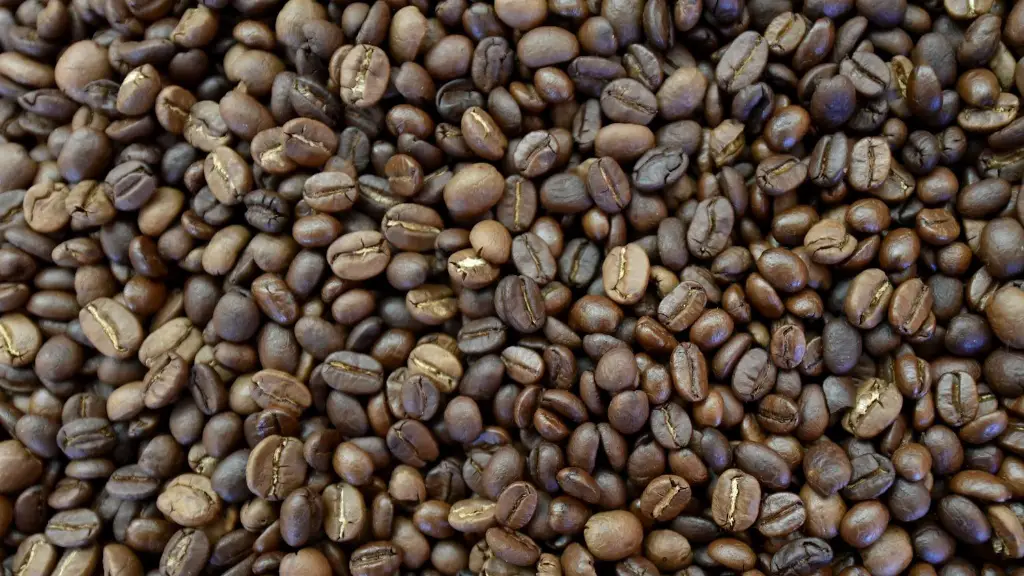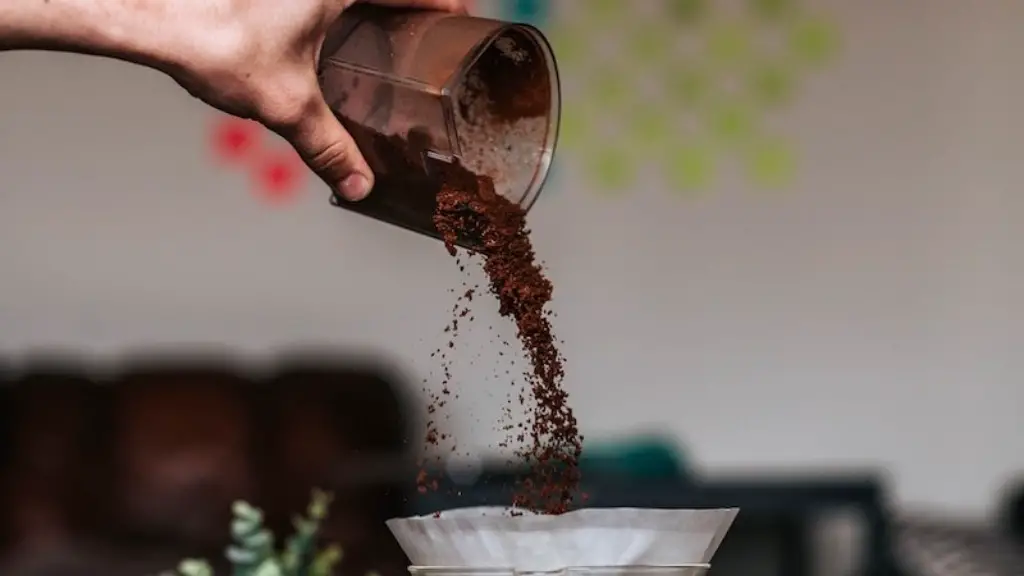Overview
Coffee is a popular beverage consumed by many people each day. It may provide several health benefits, from enhanced alertness to improved mood. Caffeine is present in coffee and, while it can provide energy, a caffeine overdose can also result in unpleasant side-effects. In this article, we’ll explore whether people with a cold can drink coffee, any risks associated with coffee consumption, and what to do if coffee consumption isn’t safe.
Consumption & Risks Associated With Colds
When you have a cold, it’s important to pay attention to both the quantity and quality of the foods and beverages you consume. It’s generally okay to drink coffee when you have a cold, but take caution to ensure that you are drinking enough water to keep your body hydrated. Large amounts of coffee can also be dehydrating and may contribute to a dry mouth.
If you are feeling extremely sick when you have a cold, you may want to avoid coffee as its caffeine content may make it difficult for your body to relax and rest. Additionally, if you are taking any medications, drinking coffee may interfere with the effectiveness of the drugs.
What Is Caffeine?
Caffeine is a stimulant commonly found in coffee, tea, energy drinks and chocolate. It works to raise energy levels, increase alertness and give a boost to your metabolism. It can be beneficial in small doses and improve your short-term memory.
However, too much caffeine can lead to headaches and other adverse effects. If you’re drinking coffee every day or throughout the day, it is important to keep track of your caffeine intake as excessive intake can result in anxiety, irritability, insomnia and other health conditions.
Can You Drink Coffee When You Have A Cold?
If you are suffering from a cold, it is usually alright to consume coffee in small amounts and about the same amount you were drinking before the cold. However, if you are feeling extremely fatigued and need to rest, it’s best to avoid coffee.
It’s important to note that if you’re feeling sneezy and congested, drinking coffee may only exacerbate your symptoms. Caffeine is a stimulant, therefore when it’s in your bloodstream, it can often trigger your cold symptoms such as a stuffy or runny nose. If you’re feeling congested, stay away from caffeine.
Other Risks Associated with Coffee Consumption
It is important to be aware of the risks associated with regular coffee consumption. Drinking too much coffee can contribute to increased acid production in the stomach, resulting in stomach ache and heartburn. If you’re not getting enough sleep, drinking coffee may also interfere with your ability to get a good night’s sleep.
Furthermore, if you are pregnant, consuming too much caffeine may increase your risk of miscarriage. Therefore, it is advisable to stick to a moderate amount of caffeine while pregnant or breastfeeding.
Coffee Alternatives
If you’re looking to increase your caffeine intake, there are many alternatives to coffee that may help you reach the same levels of alertness. By drinking herbal tea, green tea, or other caffeine-free beverages, you can get the same level of alertness as drinking coffee, sans any of the side-effects.
If you’re feeling under the weather and your energy levels are low, try consuming warm beverages such as a hot cup of tea or broth. Not only can it be easier to drink when you’re feeling congested, but these beverages may also help to relieve your cold symptoms quicker.
Can Drinking Coffee Give You A Cold?
A common belief is that colds are caused by weather changes and not germs. Though temperature can contribute to colds, it isn’t the sole cause. While drinking coffee when you have a cold won’t make you catch another cold, switching to decaffeinated coffee may be beneficial if you are feeling really unwell.
Caffeine has been linked to dehydration and further can make it difficult for your body to work optimally to fight infections. As dehydration has been found to make the common cold worse, drinking decaffeinated coffee or other hydrating beverages like herbal tea, may help.
Healthy Ways To Enjoy Coffee
Though coffee may not be ideal when you have a cold, it is alright to drink coffee in moderation. If you are already caffeinated frequently, stick to smaller amounts of coffee as this has been shown to increase alertness and performance.
You can also try switching to herbal teas or decaffeinated coffee if you’re feeling under the weather. Similarly, adding milk to your coffee will not only increase hydration levels but may also help to reduce the amount of caffeine consumed to optimal levels. Additionally, you can add honey to your coffee to make it more enjoyable and increase hydration levels.
Supplements For Fighting Colds
When you have a cold, your body may crave certain vitamins and minerals. Taking vitamins such as vitamin C, vitamin E and zinc can help to reduce the severity of a cold, as well as prevent further illnesses.
Additionally,there are many herbal remedies that you can try for colds, especially those containing natural antioxidants and anti-inflammatories,like garlic, ginger and Echinacea. Staying hydrated and getting plenty of rest are also effective in managing the symptoms of a cold and helping you to recover.
Getting The Right Balance Of Fluids And Caffeine
It’s important to stay hydrated when you have a cold and ensure that the fluids you consume won’t worsen the symptoms. This is especially true when it comes to coffee. While it’s usually safe to drink coffee when you have a cold, make sure you balance this with plenty of hydrating beverages such as water, herbal teas and decaffeinated coffee to keep your body healthy.
Knowing When To Avoid Coffee With A Cold
If you’re feeling unusually fatigued and need to rest, it’s best to avoid coffee and consider other caffeinated beverages such as green or herbal tea instead. Additionally, if you are taking any medications, drinking coffee may interfere with the effectiveness of the drugs, so you may need to take extra care.
Finally, if you are feeling congested or sneezy when you have a cold, drinking coffee may exacerbate your symptoms,so it’s best to stick to decaffeinated drinks as an alternative.
Alternatives To Coffee With A Cold
If your usual cup of coffee is too stimulating, try drinking decaffeinated and herbal teas instead. Both types of tea provide caffeine, but the levels are usually lower than those in coffee. Similarly, by adding honey to your warm beverages, you can increase your hydration levels and make your drinks more enjoyable.
Another option is to try something that naturally contains less caffeine, like mate, as this contains only 30-60 milligrams of caffeine in comparison to 95-200 milligrams present in a cup of coffee.
The Pros and Cons Of Coffee With A Cold
Though coffee is generally accepted to be safe to drink when you have a cold, it is important to practice moderation. Drinking coffee when you are feeling unwell can be beneficial to some extent, as it is known to boost energy levels, however excessive consumption of coffee can be detrimental to your health in the long-term.
Therefore, if you are feeling especially fatigued when you have a cold, you may want to consider shifting to caffeine-free and decaffeinated drinks instead. Keeping track of your hydration levels and investing in vitamins and herbs to help strengthen your immune system may also help reduce the severity of colds.



